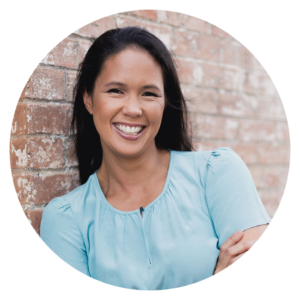We stay stuck for a reason.
While we are there, we tell ourselves, “You should really do something about that.” It sounds reasonable and true, but “should-ing” all over ourselves feels bad.
And this is the key. We do not take consistent and constructive action when we feel bad.
The reason why you are not planning and executing a plan to reverse your Type 2 Diabetes, or at least make some progress in that direction, is because of how you feel about it.
Our feelings are what drive our actions, or in many cases — inaction. Doing nothing.
- Did you snack late at night again even though you promised yourself you wouldn’t? It’s because of how the food made you feel.
- Did you join a gym or workout program and quit? It’s because of how you feel when you are thinking about your next workout.
- Are you avoiding checking your blood sugar or weighing yourself? It’s because of how you feel when you look at that number.
This is very important to know. Our feelings drive all of our actions and inactions. Anything we do or don’t do is because of how we think we will feel about it.
Right now, I am looking at dirt on my windowsill and feeling compelled to vacuum it up. Why? Because I don’t like how it makes me feel when I see it AND because of how I think I will feel once it is cleaned up 😆
So if you want to get rid of your diabetes and get off your meds, the reason why you haven’t already done it boils down to how you feel about it.
How we feel is driven by our thoughts and beliefs. If you believe it will be too hard or that you will fail, you’ll feel hopeless or discouraged. Hence, no action. If you think it’s going to take more time than you have right now, you will feel overwhelmed with the idea and take no action.
Get clear on why it is important to you to reverse your diabetes and get off your meds.
This is your compelling reason. You need crystal clarity here, because it is the fuel that drives your feelings and actions. I wrote an entire post on this if you want to open it in a new window.
Your why needs to be strong enough to compel you everyday to take action and get back on track when you mess up. It also needs to be stronger than the reasons you have to stay the same.
What? Yeah — take a minute to ponder that. Answer this question: Why haven’t you done it yet?
There are reasons why you are staying in the place you are now. It might be comfort and ease in old habits. Whatever it is, it’s keeping you stuck. You need to know what this is because it is driving your current actions and results.
Think about a permanent change you have made in your life that you feel good about. Why did it last? Why didn’t you quit when it was hard?
All the questions I have asked here must be answered. I highly recommend that you write them down. If you can come up with 20 reasons why this is important to you, that would be very helpful. It isn’t always the same reason that is going to pull you out of a rut or stop you from quitting on yourself in any given moment.
Look for ways you aren’t dealing with negative emotion.
Many of us are using food to deal with boredom, stress, or other uncomfortable emotions. It’s ok, and it’s very common. But is it an obstacle to reaching your goals?
Even if you don’t think of yourself as an emotional eater, it’s highly likely that you are eating when you aren’t hungry sometimes. The question is, why? This blog post gets into this topic in detail.
When we have taught our brains to deal with a certain negative emotion by eating, it becomes automatic.
Our brains know that negative emotion is uncomfortable, and its job is to get us out of it. This is one of our primitive brain’s main functions for survival: avoid pain or discomfort. When we have learned to feel better with food, our brains know, “Oh, this is how I deal with stress/boredom/etc. I’ll just grab a snack.”
One of my clients often feels lonely at night, around 9-10 pm. For years, he has comforted himself with eating sweets. Guess what happens when he stops dealing with loneliness this way? He has to deal with it some other way. This is uncomfortable. It can cause restlessness. He’s either going to have to figure out what is causing him to feel lonely or find another way to distract himself from the feeling.
Distracting doesn’t eliminate the cause, so it’s not going to solve the problem long-term. It’s a temporary tactic.
A lot of us will try to resist the unpleasant emotion. This is also called white-knuckling. Resisting only makes the bad feeling build until you can’t fight it anymore. That’s when we quit.
The best way to handle the negative emotion is to learn what is causing it. Because it is always our thinking that is driving it, approaching it this way gives you insight and power over it. This is what coaching is all about, whether you are doing it for yourself or working with a coach.
Don’t allow yourself to stay in confusion or overwhelm.
These are the perfect excuses for staying stuck. They are dream-stealers. They pretend to be real, but they are what we resort to when we are afraid of failure.
We tell ourselves, “I don’t know how.” “No one will help me.”
“I don’t know” is a lie. It disconnects us from the answer. It leads to confusion and overwhelm, which leads to inaction.
What if you did know how? What would it look like?
You may not know exactly ALL THE STEPS it will take and HOW it will happen, but you probably know the first step.
What if you only need to get 1% closer to your goal? Or 1% better than you were yesterday? What would that take?
ALL THAT YOU NEED TO DO IS MAKE A DECISION. Our brains avoid decisions because they represent a commitment and therefore a risk of failure. But what is the risk of doing nothing? We forget there is a huge price to pay if we stay the same.
Doing nothing is still a decision. It’s a decision to stay the same.
Don’t stay stuck. People are reversing their Type 2 Diabetes and getting off their meds every single day. Do you know what they say when they are successful?
“Why did I take so long to take action?” “I only wish I had done it sooner.”
Interested in what it’s like to work with me?
Reach out here:



